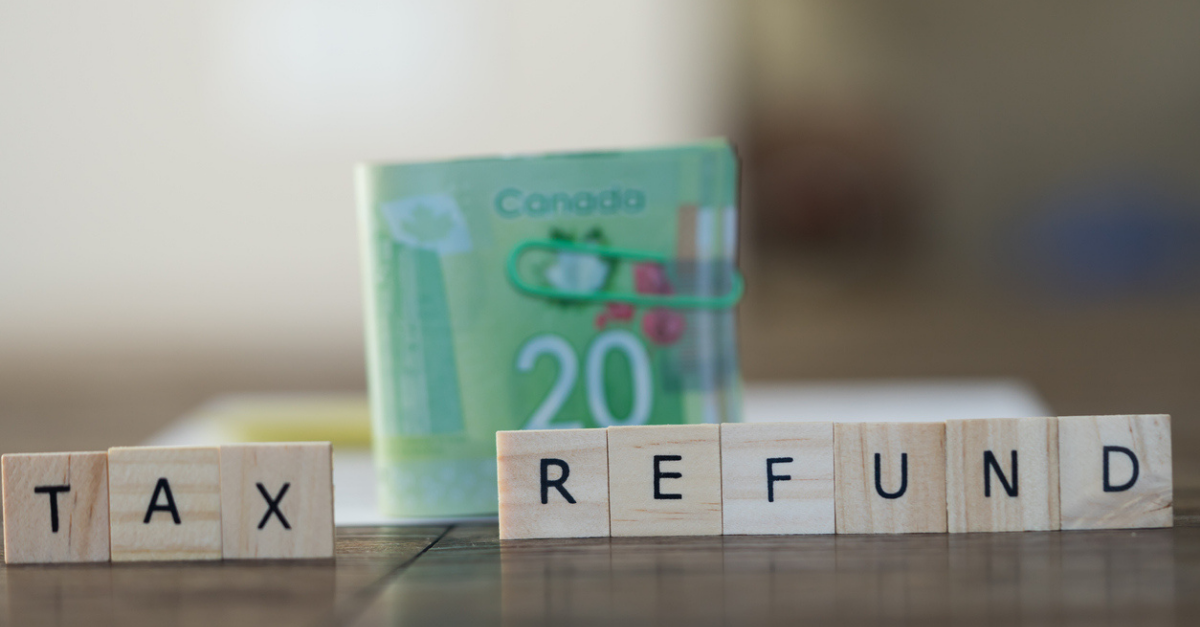
Whether you decide to file personal bankruptcy or a consumer proposal, the result is that you deal with your debts and make a plan to manage your finances going forward. While they have a similar result of helping you become debt free, bankruptcies and consumer proposals are unique in how they deal with certain assets. A good example of this is a tax refund.
Table of Contents
How are tax refunds treated in a bankruptcy?
An income tax refund is considered an asset in a bankruptcy in Canada. If you file for bankruptcy, you will automatically lose any tax refund for the year that you file. In addition, if there are any refunds due to you for any prior tax years, they will also be sent to your trustee.
Even if you amend a previously filed return or apply for a disability tax credit for any years up to or including the year you file, you will not receive those refunds (even if your bankruptcy is completed). I have seen numerous occasions where several years after finishing a bankruptcy and receiving a discharge, a person has become eligible to file for a disability tax credit. Canada Revenue Agency (CRA) will send the refunds for the pre-bankruptcy years (including the year of the bankruptcy) to the trustee and send the refund for any years after the bankruptcy to the taxpayer.
How are tax refunds treated in a consumer proposal?
Tax refunds are treated differently when you file a consumer proposal.
When you file a proposal, you are making a deal with your creditors and one of the benefits to doing this is that you keep all your assets, including your income tax refund. As long as you do not have past owing taxes, you do not lose any tax refunds when you file a consumer proposal.
If you do not owe the CRA any money and are entitled to a large tax refund each year and rely on it to pay specific expenses such as summer camps or car insurance, then you may want to consider filing a consumer proposal to keep your refund.
However, if you have taxes owing to the CRA for any past tax year at the time of filing, things get a little more complicated.
CRA’s position is that they keep any refunds on income earned prior to your date of filing a consumer proposal and offset these refunds against any past debts you owe them.
Because CRA’s practice in this matter has changed in recent years, I’d like to walk through an example to help explain when you keep and when you lose a refund in a consumer proposal if you also owe past taxes to the Canada Revenue Agency.
Let’s assume you file your consumer proposal in February 2022. You have not yet filed your 2021 – or 2022 – income tax returns. When you file your 2021 income taxes in April 2022, CRA will keep any refund to offset any tax debt included in your consumer proposal. When you file your 2022 income taxes, CRA will pro-rate how much refund they will keep and how much they will send to you. They will keep, and offset against your tax debt, 2 months and send to you the remaining 10 months since this refund was related to your post-proposal period.
The same applies to any tax credits or tax benefits you may be entitled to at the time of filing a consumer proposal. In summary, CRA will offset any tax refund or tax credits due to you up to the date of filing your proposal against any tax debt including in your consumer proposal.
Even though a consumer proposal can last up to five years, this is only done for the year that you file your proposal. Any future tax refunds for income earned after your consumer proposal date are yours to keep.
Who files your tax returns in a consumer proposal?
In a bankruptcy, your trustee will prepare and file your income tax return for the year of bankruptcy and any outstanding prior years. If you are to receive any refunds, these will be paid to your trustee and distributed to your creditors.
In a consumer proposal, you are required to file all tax returns. CRA will require you to have filed past tax returns before they are willing to accept a consumer proposal. They may also ask for a commitment that you keep all future filings to date and pay your taxes as they become due.
CERB tax debts and consumer proposals
One of the changes we’ve seen over the past few years is how CERB overpayments are impacting Canadian insolvencies. Many individuals received CERB and CRB payments with little to no taxes taken off during the pandemic. Some Canadians received both CERB and EI payments during the confusion.
If you:
- Owe taxes because you did not have sufficient withholdings at source and subsequent earnings increased your taxable income enough to create a tax liability
- Received notification or a collection letter for CERB ineligibility
you may find yourself with a sudden tax obligation you can’t pay.
A consumer proposal does deal with CRA debts as long as no fraud was involved. If, upon filing your tax return your income was high enough to trigger additional tax payments, this obligation can certainly be included in a consumer proposal. It is also our expectation that the CRA will accept a settlement for CERB repayment in a consumer proposal although this area is still evolving. Each case will likely be assessed on its merit.
If you have returned to work and now expect a refund, talk with your trustee about how these refunds may be offset against your CERB debt in a consumer proposal.
For more information about how your tax refund would be handled in a bankruptcy or consumer proposal, contact us today for a free, confidential consultation.






